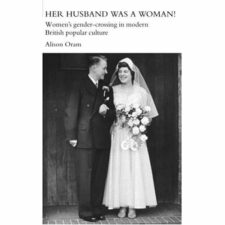 Poppies at the Tower – Remembering World War I
Poppies at the Tower – Remembering World War I
Photography: Robin R. Joyce
Revisiting Home Fronts: Gender, War and Conflict – Women’s History Network Annual Conference 2014
The breadth of topics covered by papers presented at the Women’s History Network 2014 Annual Conference is illustrated by abstracts of papers presented by Deborah Thom, Jane Berney and Sarah Bodell. These are the first of a series following on from an earlier WHN Blog from the 2014 conference: ‘Women as Renegades: Fighting for Peace During War’, http://womenshistorynetwork.org/blog/?p=4167 (accessed 20 November 2014)
Deborah Thom, Jane Berney and Sarah Bodell raise questions that provided stimulating sessions at the Conference. Publishing these abstracts on the WHN Blog provides the opportunity for comments and discussion from readers. Perhaps debate will not be as powerful as being at the Conference – where the excitement of multiple presentations, displays, exchanges in corridors and over lunch adds to the stimulation of the actual presentations with paper givers being present to respond. However, these are discussions worth continuing.
Robin R. Joyce (c) November 2014
Poppies at the Tower – Remembering World War I
Photography: Robin R. Joyce
Women’s Work in the First World War: Evidence from the Accountancy Profession
By November 1915 a quarter of ICAEW (Institute of Chartered Accountants in England and Wales) members and two-thirds of articled clerks had enlisted. As this was coupled with an increase in the demand for accountants particularly in the war ministries, it meant that there was a shortage of chartered accountants generally. But did this mean that women would be admitted as members of ICAEW to fill the gap? Women had been trying unsuccessfully since the 1890s to gain admission, a feat finally achieved in 1919. It is tempting but problematic to suggest that this was a fitting reward for the work performed by women during the war. In reality, however, ICAEW was forced to admit women following the passing of the Sex Disqualification (Removal) Act and throughout the war the profession as a whole had resisted any attempt to admit women as members. But what is perhaps more surprising is that despite the significant numbers of women who were employed in wartime as accountants and audit clerks the number of women who applied to train as chartered accountants after 1919 can be counted on the fingers of one hand. Why should this be? The work women performed during the war and the type of women who undertook this work explains why the increase in the number of females employed as accountants in the war did not translate into a similar increase in female admissions to ICAEW after the war.
Jane Berney, Independent Scholar © September 2014
Poppies at the Tower – Remembering World War I
Photography: Robin R. Joyce
Medical Missionary Women on the Home Front in the First and Second World Wars
Medical missionary women working in the slums of London on the eve of both world wars occupied a unique position through which gendered experiences of war on the Home Front can be studied today. Thousands of women worked in the capital in medical missions to the poor as physicians, nurses, dispensers, almoners, home visitors, and midwives in the early twentieth century. During times of crisis, their education and qualifications as medical professions, while being excluded from combat because of their gender, afforded these women unparalleled opportunities, both personally and professionally. Many of these women took up new positions outside medical missions – for instance, during the First World War, the head of the Bermondsey Medical Mission, Dr Selina Fox, became the first woman to be appointed governor of HM Prison Aylesbury. Many other remained in their positions within London’s medical missions working to meet the needs of their patients. During war, these ranged from frontline support of victims of air bombing raids, to material support of families who suffered more acutely in war, to the emotional and spiritual support of ‘courageous wives and mothers’. Others, yet, left the Home Front to serve as medical support staff on the frontlines of battle. This paper will explore the diverse stories of these women and their contributions to practical and emotional survival on the Home Front in the First and Second World Wars. It will show changes over time in how medical women supported the work on the Home Front and, even more importantly, how those efforts were received by those they tried to help.
Sarah Jane Bodell, University of Warwick © September 2014
Poppies at the Tower – Remembering World War I
Photography: Robin R. Joyce
Revisiting the History of the Public History of Women and War
War created instant history from 1916 and ever since the history of women and the First World War has been a synonym for thinking about a distinctive female contribution, about the politics of gender and the cultural and social history of war. Looking again at the history is a way of thinking about sources and method, thinking again about how far historians ‘disturb the ground on which they stand’ or how far they build new memorials to the past.
Deborah Thom, University of Cambridge © September 2014
Deborah Thom has taught history at Robinson College Cambridge for 27 years to social scientists, historians and students of History and Philosophy of Science. Her PhD and major book are on women’s work and the First World War and she has researched and published on feminism, education, child psychology and family. She is currently writing a book about corporal punishment in 20th century Britain and is a member of the academic advisory board for the Imperial War Museum gallery on the First World War.


